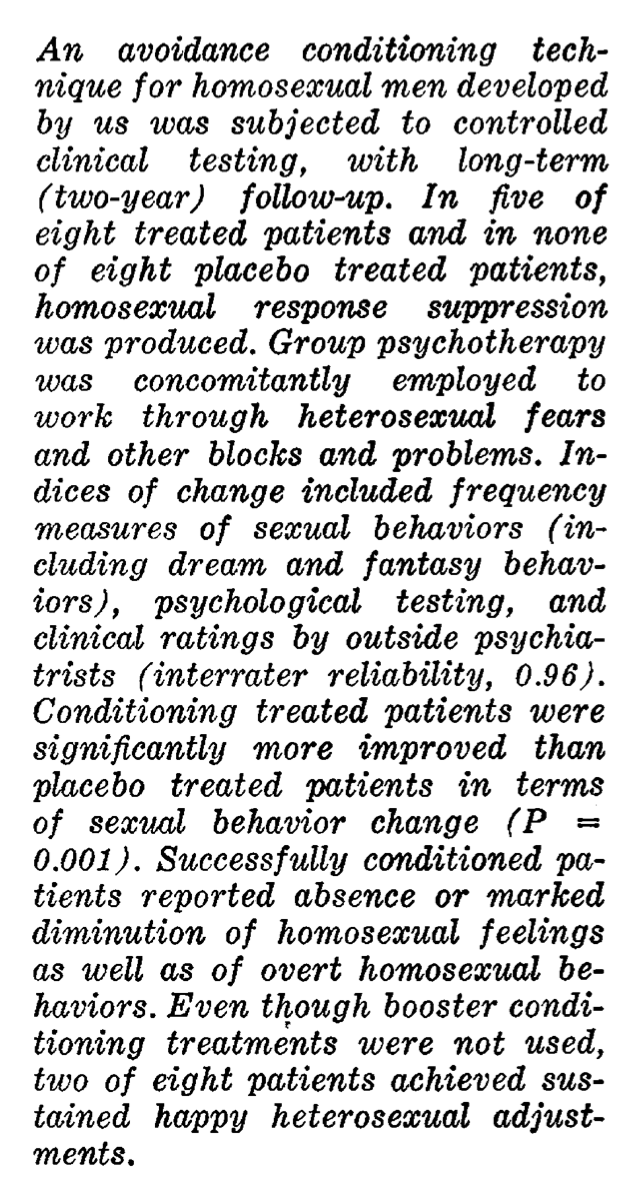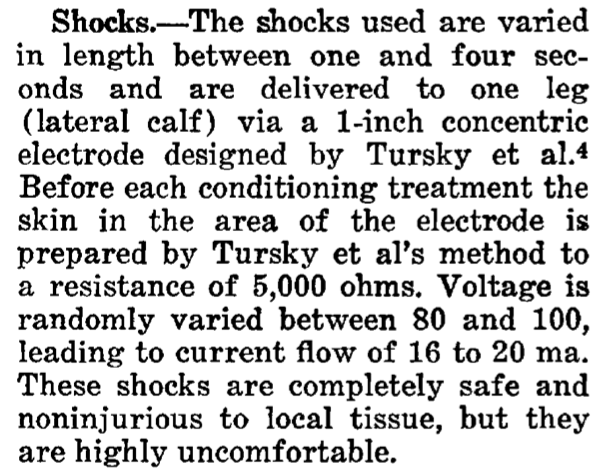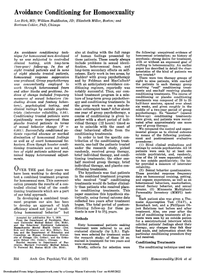Harvard research study utilizing electric shocks in treatment for homosexuality.
- Type
- Academic / Technical Report
- Source
- N/A Non-LDS
- Hearsay
- DirectSecondary
- Reference
Lee Birk, William Huddleston, Elizabeth Miller, Bertram Cohler, "Avoidance Conditioning for Homosexuality," Archives of General Psychiatry 25, no. 4 (October 1971): 314-315
- Scribe/Publisher
- Harvard University Medical School
- People
- N/A
- Audience
- The Academy
- Transcription
Abstract
An avoidance conditioning technique for homosexual men developed by us was subjected to controlled clinical testing, with long-term (two year) follow-up. In five of eight treated patients and in none of eight placebo treated patients, homosexual response suppression was produced. Group psychotherapy was concimatantly employed to work through heterosexual fears and other blocks and problems. Indices of change included frequency of measures of sexual behaviors (including dream and fantasy behaviors), psychological testing, and clinical ratings by outside psychiatrists (interrater reliability, 0.96). Conditioning treated patients were significantly more improved than placebo treated patients in terms of sexual behavior change (P = 0.001). Successfully conditioned patients reported absence or marked diminution of homosexual behaviors. Even though booster conditioning treatments were not used, two of eight patients achieved sustained happy heterosexual adjustments.
. . .
Shocks.—The shock used are varied in length between one and four seconds and are delivered to one leg (lateral calf) via a 1-inch concentric electrode designed by Tursky et al.4 Before each conditioning treatment the skin in the area of the electrode is prepared by Tursky et al's method to a resistance of 5,000 ohms. Voltage is randomly varied between 80 and 100, leading to current flow of 16 to 20 ma. These shocks are completely safe and noninjurious to local tissue, but they are highly uncomfortable.
- Citations in Mormonr Qnas
The B. H. Roberts Foundation is not owned by, operated by, or affiliated with the Church of Jesus Christ of Latter-day Saints.



